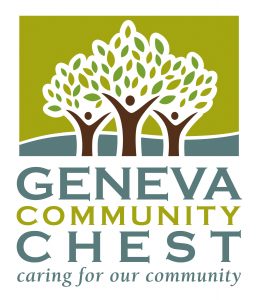Family-Based Treatment For Eating Disorders
At TriCity Family Services, we believe that eating disorders are treatable, and that everyone is capable of a complete and full recovery.
What are the symptoms of an eating disorder?
Does your child or teen …
- Engage in extreme calorie-counting or portion-control?
- Feel ashamed, disgusted or guilty after eating?
- Constantly worry about his or her weight or shape?
- Obsess over the number on the scale?
- Binge?
- Purge?
- Refuse to eat with family or friends?
- Use diet pills or laxatives?
- Exercise excessively?
If you answered “yes” to any of these questions, you may want to consider Family-Based Treatment for Eating Disorders, a compassionate approach for families dealing with:
- Anorexia
- Bulimia
- Binge-Eating
- Disordered Eating
What is Family-Based Treatment for Eating Disorders?
Family-Based Treatment for Eating Disorders, also known as FBT, is a highly practical, evidence-based outpatient approach that recognizes parents as the best resource for their child’s recovery, and uses a team model that includes the therapist, the family physician, family members and other partners to achieve success.
Our 6-to-12-month program does not focus blame for the eating disorder on anyone. The therapist and family work together to refeed the child, develop healthy eating patterns, and address individual and family concerns.
The FBT approach is ideal for children who have been struggling with an eating disorder for less than three years, and who do not require hospitalization.
Clinical FBT staff are trained in the model used at University of Chicago.
What are the Phases of FBT?
FBT consists of three distinct phases:
Phase I – Weight Restoration
Parents, with the support of the therapist, assume control by providing the type and amount of food needed to restore their child’s health. When the child’s physical health has been restored, the family can move on to Phase II.
Phase II – Returning Control Over Eating Back to the Child
Once weight has been restored, and disordered eating has been resolved, families are encouraged to help their child take more control over eating. The child learns to resume healthy eating patterns and maintain weight independently. Other family relationship issues, or concerns that the family has had to postpone, can now be brought forward and addressed in therapy.
Phase III – Establishing a Healthy Identity
When the child has demonstrated that he or she can maintain a healthy weight, treatment shifts to the impact that the eating disorder has had on the child’s ability to form a healthy identity and how to restore familial relationships.
Where can I find out more about eating disorders?
Right here! Click a link below for more information.
- Eating Disorder Facts
- Nine Truths About Eating Disorders
- Recognizing an Eating Disorder
- Identity & Eating Disorders
- Internet Resources About Eating Disorders
- Recommended Reading
Please listen to an interview, featured on 95.9 The River in 2018, re: eating disorder statistics and debunking myths:
Generously supported by Geneva Community Chest
Please call us at 630.232.1070 for more information
 Donate Now
Donate Now

